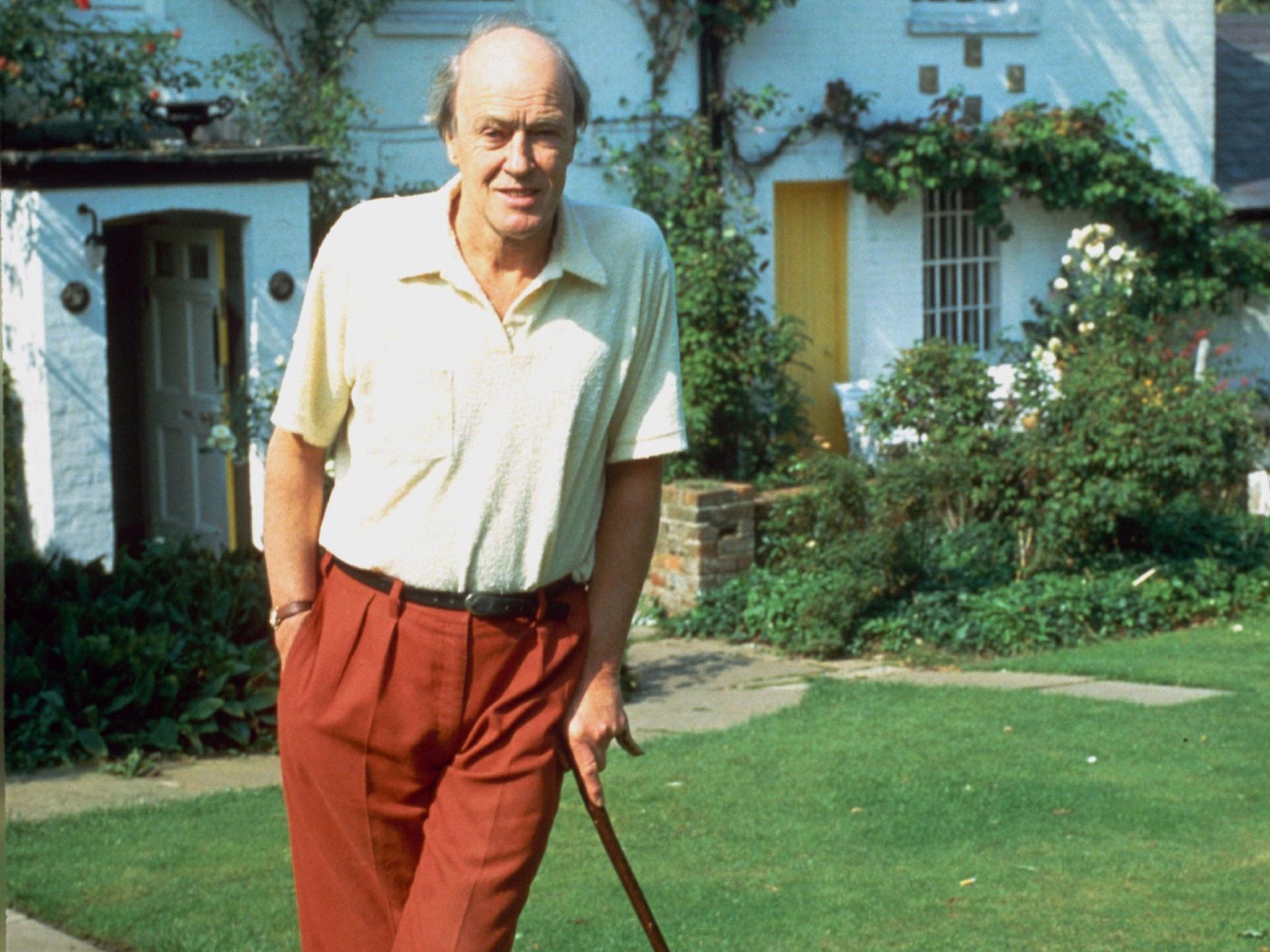The tale of the unexpected decline of Roald Dahl
His dark humour and wacky characters enchanted generations, so why are modern children now leaving Charlie, Matilda and Mr Fox on the shelf?

Your support helps us to tell the story
From reproductive rights to climate change to Big Tech, The Independent is on the ground when the story is developing. Whether it's investigating the financials of Elon Musk's pro-Trump PAC or producing our latest documentary, 'The A Word', which shines a light on the American women fighting for reproductive rights, we know how important it is to parse out the facts from the messaging.
At such a critical moment in US history, we need reporters on the ground. Your donation allows us to keep sending journalists to speak to both sides of the story.
The Independent is trusted by Americans across the entire political spectrum. And unlike many other quality news outlets, we choose not to lock Americans out of our reporting and analysis with paywalls. We believe quality journalism should be available to everyone, paid for by those who can afford it.
Your support makes all the difference.Roald Dahl taught a generation how to fight back against the monstrous world of the grown-ups with marvellous medicine, magic fingers and a healthy dose of naughtiness.
But now the old rebel of children’s literature, loved by millions for his dark humour and taste for the surreal, is more popular with adults than with children, according to a new survey of children’s literary tastes.
Although Dahl is still the author children read the most, not one of his books appears in the top 10 titles children said they enjoyed reading in the latest national What Kids are Reading report.
The report’s authors, Renaissance Learning, claim that the discrepancy shows “a big difference between the books children enjoy reading and the books…they are encouraged to read by adults”.
Dahl’s books, such as Matilda, Charlie and the Chocolate Factory and Fantastic Mr Fox, were staple childhood reads for several generations who are have now started families of their own. Tim Burton and Wes Anderson have adapted them into knowing films for grown-ups and comedian Tim Minchin had a runaway success with his stage version of Matilda.
But the books themselves appear to be getting less popular with children. In the survey of more than 300,000 schoolchildren age 5 to 16-years-old, the most popular book was Rachel Caine’s Glass Houses, the first in her Morganville Vampire series. Another tale of angst-ridden vampires, Stephenie Meyer’s Twilight was not far behind.
Two of J.K Rowling’s Harry Potter books, The Prisoner of Azkaban and The Goblet of Fire are still in the top 10, alongside Anthony Horowitz’s Crocodile Tears and Jeff Kinney’s Diary of a Wimpy Kid: The Ugly Truth.
Dahl leads the top 10 most-read children’s authors, along with other teacher-friendly writers such Michael Morpurgo and Jacqueline Wilson, but doesn’t have a single book in the top 10 best-loved books.
“It’s clear that although books such as Roald Dahl classics may still be very prevalent in schools, children’s tastes have very much moved on and it’s TV, film, and vampires that are currently in vogue,” said Dirk Foch, head of Renaissance Learning.
All of the top 10 books belonged to a series, which Mr Foch suggested allowed for greater engagement in young readers and encouraged boys in particular “to focus on finishing the entire series, partly because of the competitive element”.
Half of the top 10 have gained in popularity thanks to a movie adaptation – and all the associated merchandise. “The most popular books are being suggested to kids by adults, not by teachers and librarians but by marketing executives in film studios and publishing houses, throwing huge amounts of money behind these titles,” said Dr Lisa Sainsbury, director of the National Centre for Research in Children’s Literature.
“As for Dahl, his books have been chosen by children in the past in the face of adult dissent. But as generations grow up and culture moves on then they become validated by figures of authority and are perhaps less subversive”.
Dahl, who died in 1990, wrote dozens of books and poems for children and adults which have sold more than 100 million copies worldwide. His stories, even those aimed at young children, almost always touched on the darker side of life. The hero of James and the Giant Peach, Dahl’s first children’s book, is an orphan whose parents died violently and escapes abusive relatives. Dahl’s books also have a strong sense of tough justice, with horrible punishments befalling the mean-spirited children in Charlie and the Chocolate Factory.
Those who have taught Dahl’s work in the classroom believe that this refusal to patronise his audience means Dahl still has plenty to the offer a generation of Twilight readers. “One of his strengths is his characterisation,” said Ian McNeilly, former school teacher and director of the National Association for the Teaching of English. “In an almost Dickensian style he can bring characters to life and make them incredibly memorable. He had an excellent ability to see adult behaviour through a child’s eyes. He unashamedly revelled in naughtiness. Some might argue he belongs in a more innocent age, but he’s an enduring author and long may he continue to be so”.
Children’s favourites: Ten most popular
1. Glass Houses: The Morganville Vampires, Rachel Caine.
2. Harry Potter and the Prisoner of Azkaban, J.K. Rowling
3. Twilight, Stephenie Meyer
4. Crocodile Tears, Anthony Horowitz
5. The Dead Girls’ Dance, Rachel Caine
6. Diary of a Wimpy Kid: The Ugly Truth, Jeff Kinney
7. Harry Potter and the Goblet of Fire, J.K. Rowling
8. Percy Jackson and the Battle of the Labyrinth, Rick Riordan
9. Mates, Dates and Sole Survivors, Cathy Hopkins.
10. Survival, Chris Ryan
Join our commenting forum
Join thought-provoking conversations, follow other Independent readers and see their replies
Comments